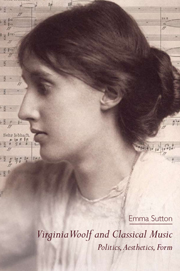6 - Only Suggest
Published online by Cambridge University Press: 05 April 2014
Summary
The Waves (1931) has long been perceived as Woolf's most ‘musical’ – and most Wagnerian – novel. Studies of Wagner's literary influence from the 1960s onwards recognised the novel's thematic and structural affinities to the Ring and explored (albeit briefly) Woolf's use of the leitmotiv. William Blissett termed the novel ‘pervasively leitmotivistic in its structure and symbolism’, John DiGaetani characterised Wagner's influence as ‘pervasive, despite the fact that his name never appears’ and Raymond Furness described the work's ‘symbols and motifs’ as ‘derived incontrovertibly from Wagner’. More recently, Woolf scholars have explored the novel's debts to Parsifal and its intermediality with Beethoven's late string quartets. Numerous contemporary reviewers and more recent critics have compared the novel to a poem or to music, describing it, for instance, as ‘a kind of symphonic poem […] in prose’ and ‘a poetic novel’. Without diminishing these recognitions of the novel's formal experimentalism or forgetting that Woolf herself described the work as a hybrid genre, Linden Peach rightly notes that in these comparisons ‘music’ and ‘poetry’ often denote the ineffable, suggesting that the novel is essentially apolitical. Yet Woolf herself was dissatisfied with this reception, stating that The Waves ‘is solid & means something’ (D, IV: 45). Public school, the established church, imperialism and social class are among the ‘solid’ things critiqued in the novel.
- Type
- Chapter
- Information
- Virginia Woolf and Classical MusicPolitics, Aesthetics, Form, pp. 137 - 153Publisher: Edinburgh University PressPrint publication year: 2013



